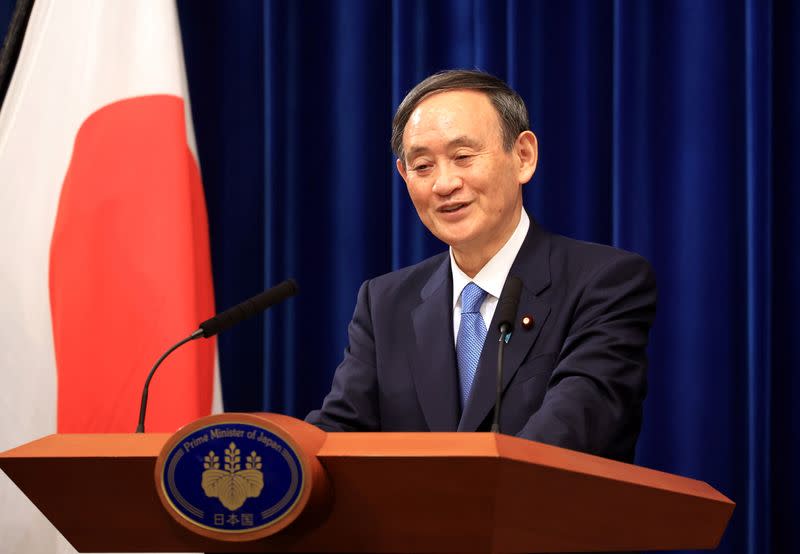By Eimi Yamamitsu and Tetsushi Kajimoto
TOKYO (Reuters) – Japanese Prime Minister Yoshihide Suga said he is considering extending the state of emergency beyond Tokyo to include the prefecture of Aichi, home of Toyota Motor Corp, and other central and western areas to contain the spread of COVID- 19.
“We are assessing the situation now,” he told the Asahi newspaper.
The state of emergency gives local authorities the legal basis to impose restrictions on residents’ movements and business, but under Japanese law, the prime minister has the power to declare it.
Responding to pressure from Tokyo and three neighboring prefectures in the east of Japan’s main island of Honshu, Suga last week declared a month-long state of emergency for that region until February 7.
But the number of coronavirus cases has also increased in the west, prompting Osaka, Kyoto and Hyogo to seek a state of emergency. On Tuesday, the central prefectures of Aichi and Gifu also asked the government to be included in the state of emergency.
The government is now finalizing plans to do so as early as Wednesday, the Kyodo news agency reported, citing government sources.
Adding these five prefectures would mean about half of Japan’s population of 126 million people living under emergency restrictions.
The Japanese government’s chief spokesman, Chief Cabinet Secretary Katsunobu Kato, did not confirm the report, saying only that the government would consider measures for a “rapid response” to the Osaka area.
CRITICIZED RESPONSE
Suga was criticized for what many called a slow, confused and fragmented response to the pandemic, as infections reached record levels.
About 79% of respondents to a Kyodo survey published on Sunday said their decision to declare the Tokyo emergency came too late.
Daily cases peaked at 7,882 last Friday, bringing the overall count to almost 300,000, public broadcaster NHK said.
In an attempt to help the struggling service sector, the government offered generous subsidies to encourage citizens to travel to their country and dine out, only to stop efforts at the end of last year, when virus cases soared.
Now he is asking Tokyo area residents to stay at home as long as possible and asking bars and restaurants to close at 8 pm.
“Please avoid going out, not only at night, but also during the day,” Economy Minister Yasutoshi Nishimura said on Twitter, adding that daytime departures during the three-day weekend have not diminished despite the emergency .
Like many nations, Japan is struggling to balance efforts to contain the virus against damage to its economy, which is the third largest in the world.
With inbound tourism suspended, the hotel industry has endured the impact of pain. Last year, 118 hotels crashed, accounting for about 47% of total bankruptcies, a Tokyo Shoko Research survey showed.
Finance Minister Taro Aso said the government would offer one-off payments of up to 400,000 yen ($ 3,835) to companies that support restaurants and bars that shorten business hours, such as suppliers of disposable chopsticks and wet towels.
The maximum compensation for the restaurants themselves will increase by 50%, Suga said.
The latest emergency measures do not require that state budgets already compiled be overhauled, Aso said.
(Reporting by Eimi Yamamitsu, Tetsushi Kajimoto, Chris Gallagher, Leika Kihara and Chang-Ran Kim; Writing by Chang-Ran Kim; Editing by Lincoln Feast, Gerry Doyle and Alex Richardson)
